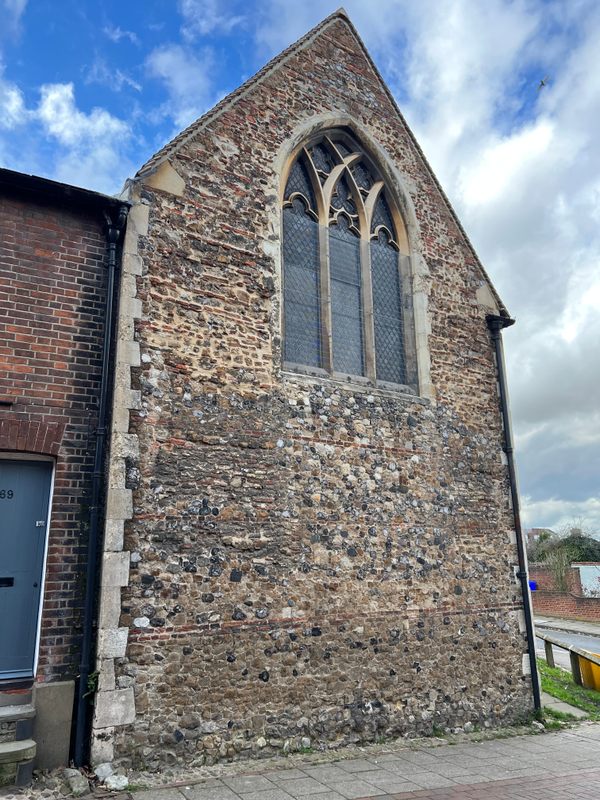Originally constructed in the 11th century, the chapel is dedicated to St Helen, who is traditionally believed to be the mother of Constantine the Great and credited with finding the True Cross. This ancient building has served various purposes over the centuries, including a chapel, a schoolroom, and even a meeting place for the Dutch community in Colchester.
The architecture of St Helen’s Chapel is a mix of styles, reflecting the many phases of its long history. The chapel’s most striking feature is its early Norman construction, characterized by thick stone walls and small, rounded windows. Despite the many alterations and restorations it has undergone, the building still retains much of its medieval charm and atmosphere. Inside, visitors can find remnants of ancient wall paintings and other historical artifacts that offer a glimpse into the chapel’s past.
Throughout its history, St Helen’s Chapel has witnessed the ebb and flow of Colchester’s fortunes. From its early days as a center of worship to its use by the Huguenot refugees in the 16th century, the chapel has always been at the heart of the community. Its survival through periods of upheaval, including the English Reformation and the Civil War, is a testament to its resilience and the enduring importance of its spiritual and cultural legacy.
Know Before You Go
The chapel is open to visitors at various times throughout the year, often coinciding with special events or heritage days. Check local listings or contact the Colchester Tourist Information Centre for specific opening times.
There is typically no entrance fee, but donations are welcome to help with the upkeep of this historic site. Due to its age and the preservation of its original features, the chapel may have limited accessibility for visitors with mobility issues. The entrance and interior spaces are relatively small and may require navigating uneven ground.

